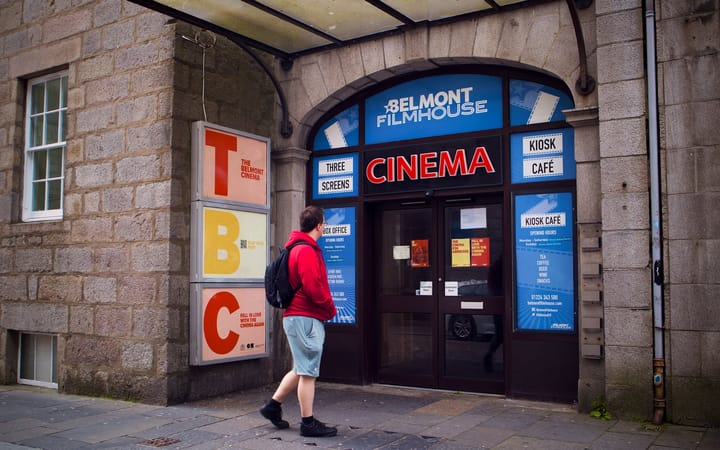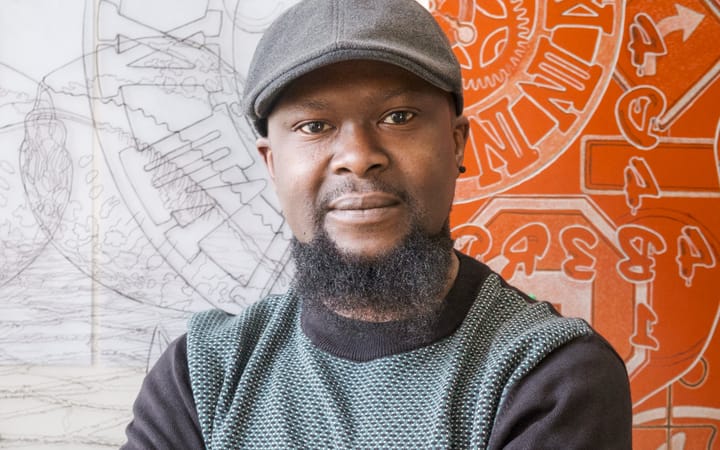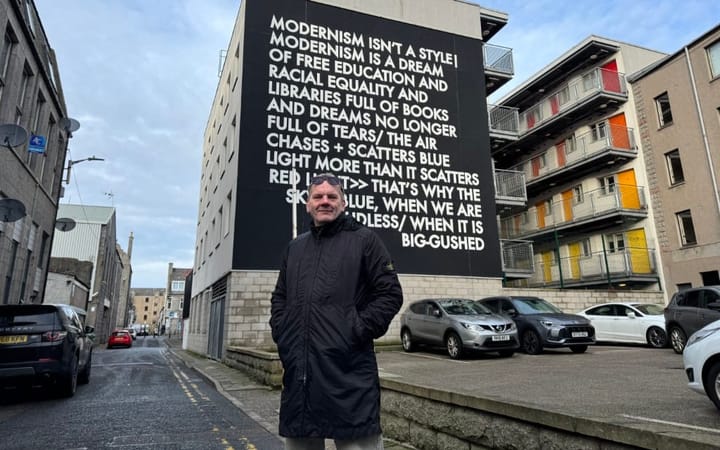Founding FINE Weekend Builds Space for Community Collaboration
Artists and freelancers rejuvenated their creativity and connections in a unique reflective gathering.
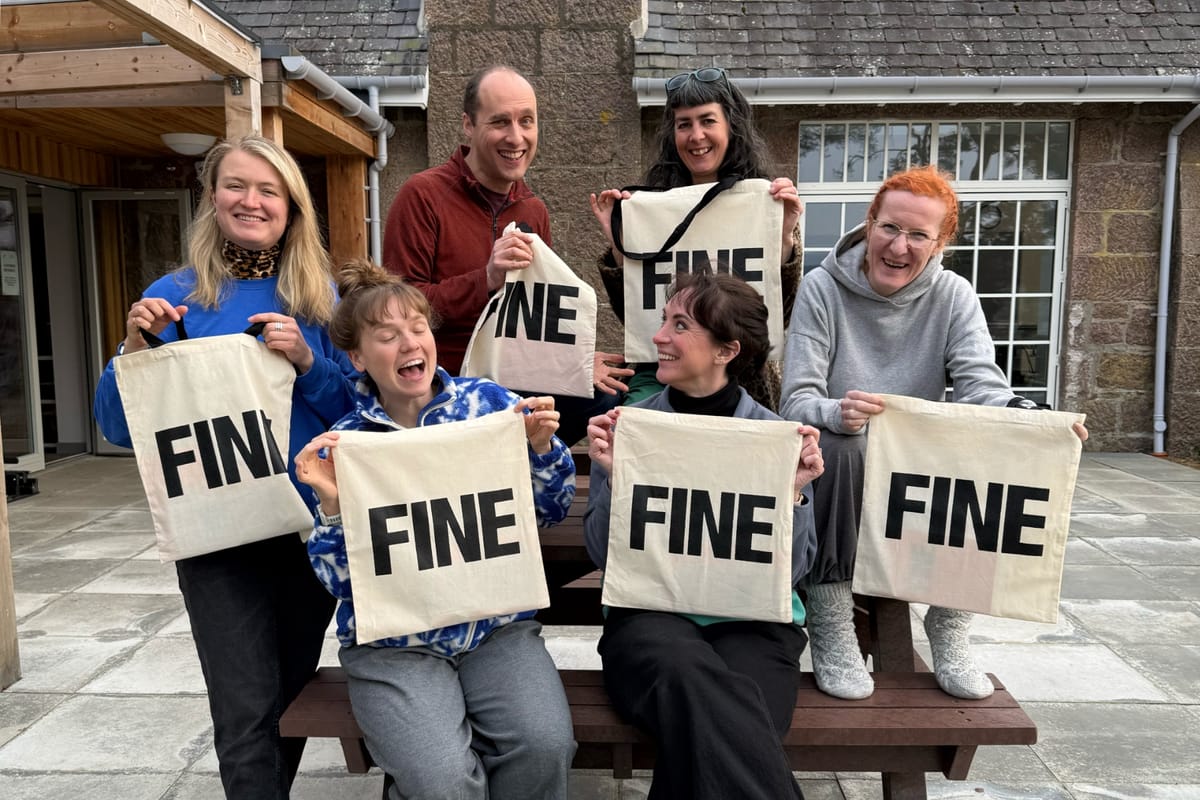
Late last month, something different happened at the Sir Arthur Grant Centre in Monymusk. The first-ever Founding FINE residency brought together a group of freelancers, artists, and cultural workers for a weekend centred on connection and care.
Organised by FINE (Freelance Independents North East) and supported by Culture Aberdeen, Look Again at Gray’s School of Art, and the UK Shared Prosperity Fund, the weekend offered a supportive new approach for creative people in the North East.
The idea was simple: give people time—not to perform or produce, but to rest, reflect, and share. The theme was “An Invitation to a Brave Space,” and that invitation was taken seriously. This wasn’t a conference or a retreat with a packed schedule. It was a chance to reconnect with your creative self and others, without pressure.
Making Room to Just Be
For many in the arts, there’s rarely a moment to pause. The demands of producing work, meeting deadlines, applying for funding, and staying “visible” can make real rest feel impossible. The residency pushed against that. From the outset, it offered a space where people could rest, play and plan, opt-in or out, move at their own pace, and simply be.
There were structured workshops, but no one was expected to join them all. Some chose to sit quietly. Others went for walks or had long conversations in the kitchen. People took time to draw, sing, write, share food, and swap stories. The absence of pressure created space for presence.
Dorms were arranged by temperature preference (warm or cool), and people organised themselves. No schedules taped to walls, no mandatory sessions, and no hierarchy. This approach helped set a tone of ease and trust that shaped the weekend.
Some arrived burnt out. Others were unsure of where they fit in the creative sector. Many left with a renewed sense of purpose, a new connection, or a sense of calm they hadn’t felt in a long time. One person said they hadn’t made anything for months, but come Sunday, they were full of new ideas.
Moments That Weren’t on the Programme
The residency included creative sessions where folk could draw, sing, listen, and tell stories. However, some of the most meaningful experiences happened outside the scheduled activities. There were harp performances in the woods, group meals prepared and shared, quiet mornings watching the sunrise, and notes of encouragement left in dorm rooms.
People began offering informal workshops and rituals—like a late-night karaoke session, a mini book swap, or a spontaneous zine-making group. These weren’t planned, but they emerged organically as trust grew.
By the final night, the group dynamic had changed completely. What began with polite introductions and occasional phone-scrolling became a space to sing, laugh, and collaborate. Folk said they felt seen and supported, free to show up as their complete selves.
The weekend created an atmosphere where people couldn’t disappear behind screens or routines. With no alcohol and limited phone use, the group had to be present with each other. That kind of presence can be rare but here it felt natural.
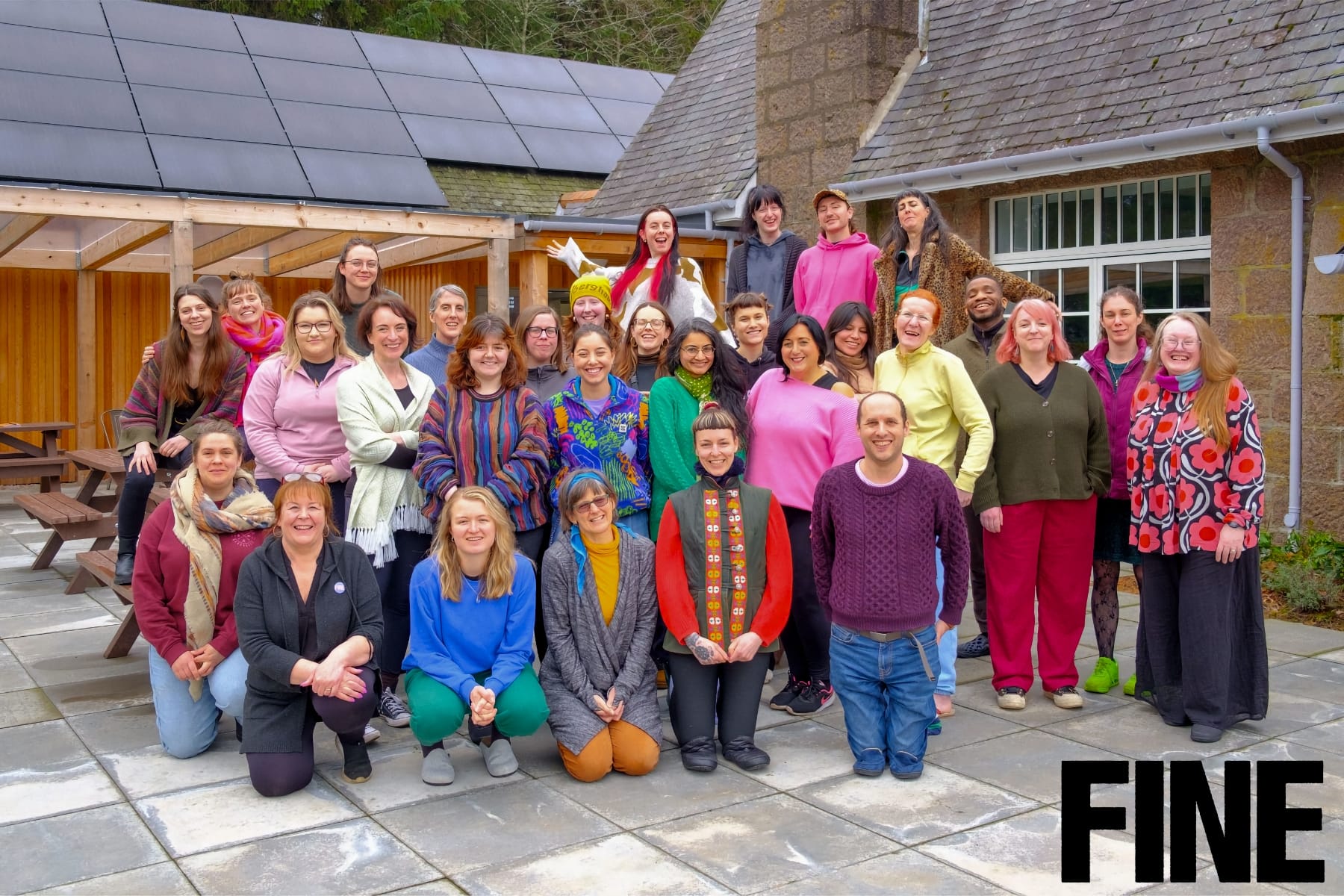
A Shared Vision for the Region
This pilot residency also offered a wider glimpse into the kind of creative landscape many hope to build. Sally Reaper, Director of Look Again at Gray’s School of Art, reflected: “FINE represents everything Look Again stands for by supporting creative people to connect, collaborate, and take the lead in shaping the future of our region’s cultural landscape.”
She continued, “It’s been inspiring to see the freelance community in Northeast Scotland come together, grow in confidence, and create new and meaningful connections. This pilot project and residency has laid the foundation for a stronger, more self-sustaining freelance peer led network, and we’re proud to have played a part in its beginnings.”
That sense of long-term potential was felt strongly by those present. It wasn’t just about a single weekend—it was about planting something deeper. A creative ecology built on trust, openness, and peer support.
What Comes Next?
Even though the weekend wasn’t designed around outcomes, it sparked a wave of new ideas. People left with plans for collaborations, future residencies, and artist-led gatherings. Some want to host supper clubs or board game nights. Others are developing funding proposals or projects inspired by the conversations they had.
Some of the most consequential changes were personal. A few attendees said they’d lost touch with their creativity, and the weekend helped them reconnect. Others realised they needed to rethink how they were working and where their energy was going.
One participant described it as “a creative recalibration”—a weekend that reminded them why they started making art in the first place.
There’s also talk of creating more accessible formats for future events. Suggestions included shorter sessions, funding for transport and childcare, and city-based meetups for those unable to travel or commit to overnight stays.
Creative Lives in All Forms
The residency didn’t assume one definition of creativity. The group had full-time artists, part-time makers, creative professionals with day jobs, and those returning to practice after a long break. That diversity wasn’t flattened or categorised—it was embraced.
Some people create to make a living. Others do it for joy, healing, or connection. The weekend created space for these motivations to exist side by side. No one had to justify why they were there.
This highlighted something important: there’s no single way to be creative. And any approach to supporting the arts that overlooks that complexity will probably miss the mark.
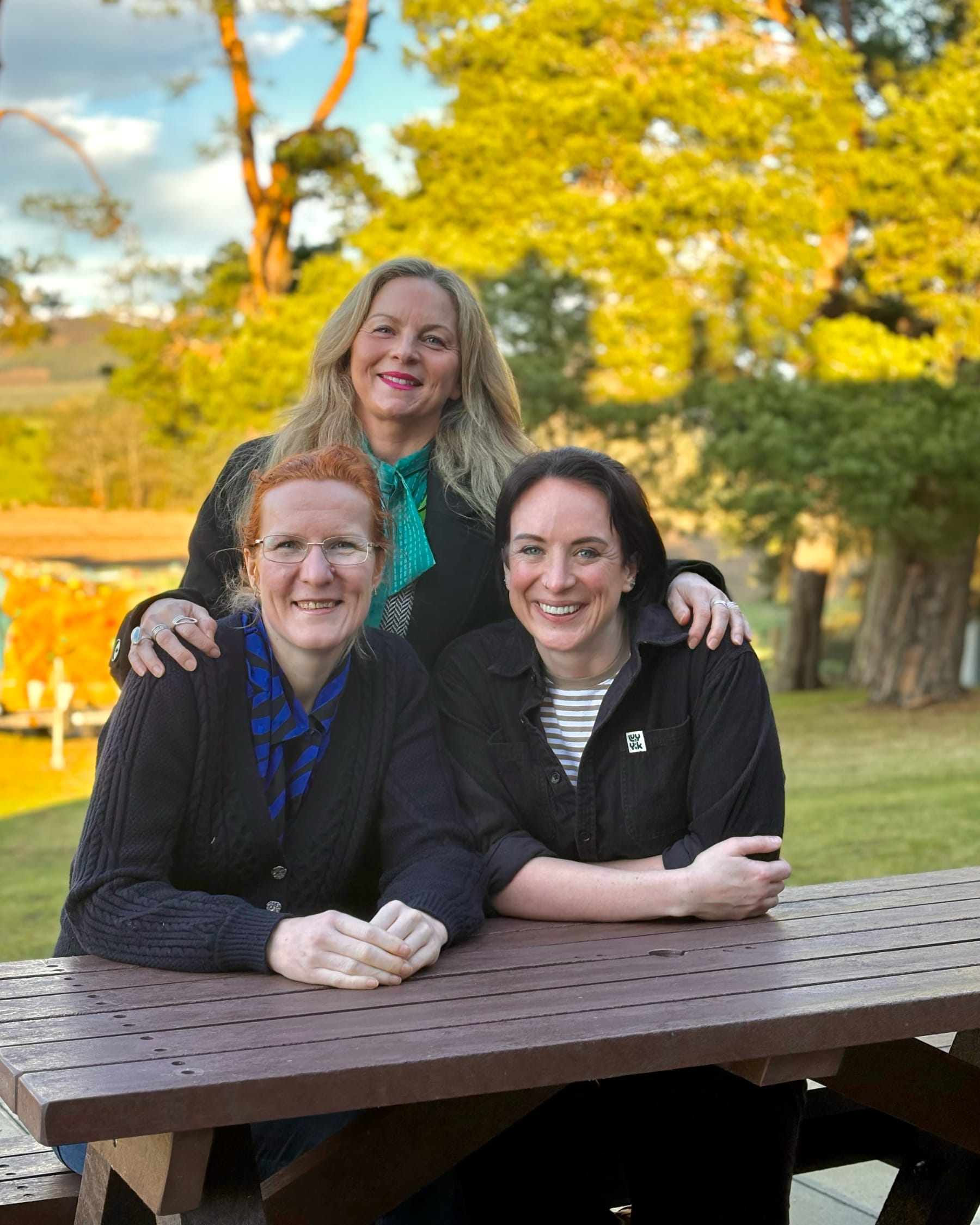
The Practicalities and the Learning
Like any gathering, there were a few bumps. The small organising team worked hard to keep things running while also trying to participate. Balancing those roles took effort. Challenges were met with humour and patience, and the overall mood remained relaxed. Everyone pitched in when needed. That spirit of shared responsibility became part of what made the event feel so different.
The location and format won’t work for everyone—shared dorms and three-night commitments can be barriers. But those same things helped create the conditions for connection. Slowing down, sharing space, and removing distractions made room for something rare.
The organisers are already reflecting on how to build on this experience. They’re exploring ways to offer other formats, support future meetups, and keep the community connected.
A Lasting Impact
This was a chance to reset, to stop, breathe, and take stock. It reminded everyone involved that creative work isn’t only about what you make. It’s also about the spaces you make for yourself and others.
The weekend offered a model for supporting creative people. Not just their output but their well-being, relationships, and reflections. It provided something many hadn’t known they were missing.
Those who were there are still in touch, building on the trust and energy they found together. Whether through friendships, new collaborations, or future events, the ripple effects are still unfolding.
Ultimately, the Founding FINE weekend was about more than rest or ideas. It was about remembering that community can be a creative act in itself. Sometimes, just being together is enough.
Looking Ahead to FINE Nights
Building on the residential’s momentum, FINE has launched a new series of monthly gatherings called FINE Nights. These informal evenings will offer freelancers a relaxed space to share work, meet others, and strengthen connections within the local creative community.
Whether you’re looking to test an idea, find new collaborators, or catch up with familiar faces, FINE Nights will be a low-pressure, social way to stay connected and inspired throughout the year. Look out for the opening event by following FINE Aberdeen on Instagram.
Sincere thanks to Claire Abbott and Birgit Itse for taking the time to meet and talk so openly about the Founding FINE weekend. I hope their spark and thoughtfulness comes across in this article.
Chris.



